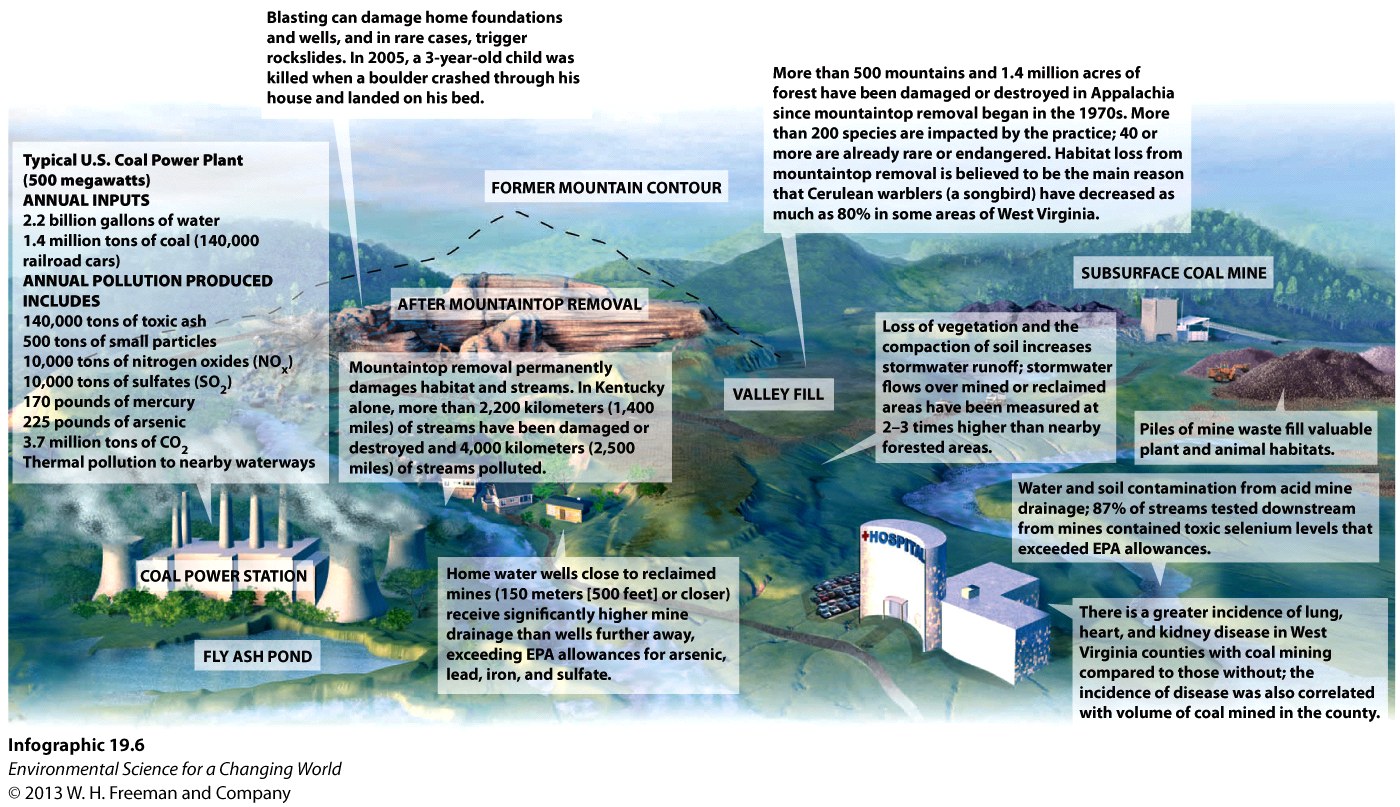
Chapter 19. Chapter 19: Coal
What are the drawbacks of using coal?

Guiding Question 19.4
What are the drawbacks of using coal?
Why You Should Care
Coal’s widespread use speaks to its advantages: It is relatively cheap and widely accessible and well suited to generating electricity. Its disadvantages come in many different spheres as well—water pollution, air pollution, and ecosystem degradation.
All types of coal mining create overburden that must be removed and piled as mine spoils. Rainwater trickles through this waste and creates acidic runoff that pollutes nearby streams, lakes, and rivers. Once coal is hauled (by barge or train) from the mine to the power plant, burning it releases the most carbon dioxide per ton of any fossil fuel.
Mountaintop removal poses its own set of drawbacks. Not only is there acid drainage, but there are also whole mountains that are clearcut, dug up, and moved to nearby lower elevations. These ecosystems can never return to their original state once their soil layers are disrupted in this way.
Test Your Vocabulary
Fill in the blank with the correct term for the following definition:
A document outlining the positive and negative impacts of any action that has the potential to cause environmental damage is called an .

1.
How are streams impacted by coal mining?
2.
How are forests impacted by coal mining?
3.
How is human health impacted by coal mining?
Activity results are being submitted...